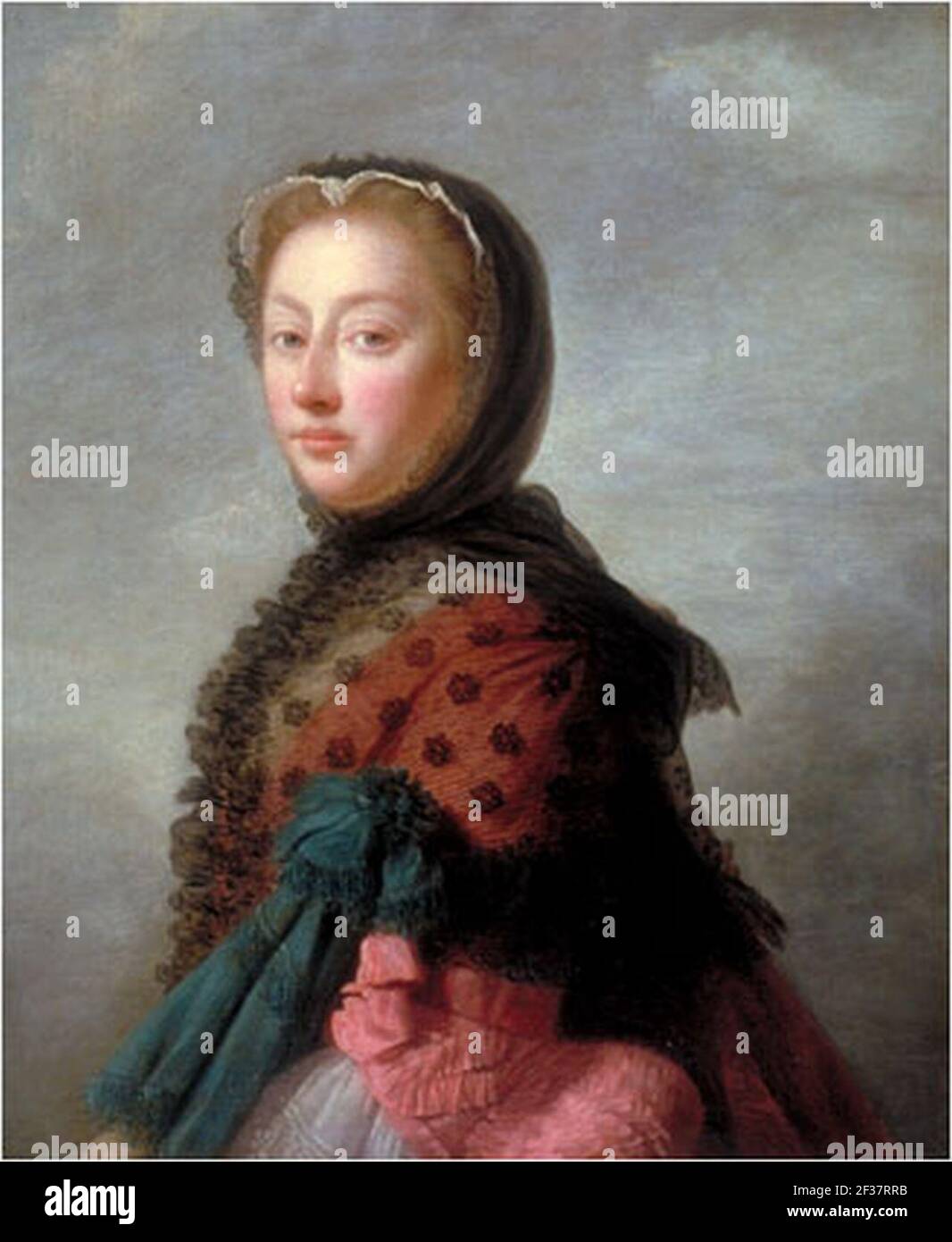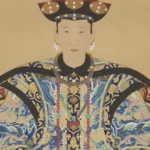Princess Augusta of Saxe-Gotha, a woman who never wore the crown but significantly influenced the British monarchy. Her life, a blend of royal privilege, political maneuvering, and personal loss, offers a fascinating glimpse into the 18th-century world. From her German upbringing to her role in shaping a king, Augusta’s story is one of resilience and quiet power.
Early Life and Arrival in Britain
Augusta was born on November 30, 1719, in Gotha, Germany, into the ducal family of Saxe-Gotha-Altenburg. This upbringing likely instilled in her a deep understanding of courtly life, aristocratic duty, and the intricacies of European power dynamics. At the age of sixteen, she embarked on a journey that would forever alter the course of her life. In 1736, she arrived in England to marry Frederick, Prince of Wales, a union orchestrated to strengthen political ties between Great Britain and her German homeland. This marriage thrust her onto the British royal stage, a world both dazzling and daunting for a young princess far from home.
A Crown Unattained: Widowhood and Motherhood
Augusta’s path to becoming Queen Consort was tragically cut short. In 1751, Frederick predeceased his father, King George II, leaving Augusta a widow at 32. Dr. Doran, a contemporary writer, described her as overwhelmed by sorrow at Frederick’s death, a poignant image of a woman grappling with profound loss. This unexpected turn of events placed the immense responsibility of raising nine children, including the future King George III, squarely on her shoulders. This period likely tested her resilience and shaped her into the formidable woman she became, navigating the often-treacherous waters of the British court while mourning the loss of her husband.
Kew Gardens: A Flourishing Legacy
Amidst the pressures of court life and the weight of her responsibilities, Augusta sought solace and purpose. She poured her energy into transforming Kew Gardens, working closely with architect Sir William Chambers. Under her watchful eye, Kew blossomed into the magnificent botanical paradise we know today, showcasing rare and exotic plants from across the globe. Chambers’ iconic structures, such as the Great Pagoda, stand as testaments to Augusta’s vision and enduring legacy. Whether this endeavor was a form of escapism, a genuine passion, or perhaps a combination of both, Augusta’s dedication to Kew is undeniable.
A Mother’s Influence: Shaping a King
Augusta’s impact extended far beyond horticulture. As the mother of George III, her influence permeated the very heart of the British monarchy. Historians suggest that her guidance played a significant role in shaping his character and, consequently, his reign. The nature and extent of her influence remain a subject of ongoing historical inquiry. Did her experiences as a widowed princess inform his decisions as king? What values and perspectives did she instill in him? Exploring this mother-son dynamic provides valuable insights into a pivotal period in British history.
A Woman of Power and Influence
In the male-dominated world of 18th-century Europe, Augusta carved out a space for herself on the public stage. She skillfully navigated the complexities of royal politics, raised a future king, and left an indelible mark on British horticulture and history. Her story is a testament to her resilience, adaptability, and quiet strength. Augusta’s ability to wield influence, even without the crown, demonstrates that power can manifest in various forms. Her legacy reminds us that sometimes the most impactful leaders are those who work behind the scenes, shaping events with a subtle yet firm hand. Explore further fascinating figures like Lotta Crabtree, an American entertainer, or delve into historical sites like Lumbinī, the birthplace of Buddha.
Did Princess Augusta like Queen Charlotte?
The relationship between Princess Augusta and Queen Charlotte is a topic shrouded in some mystery. While definitive answers remain elusive, historical analysis suggests a complex dynamic shaped by court politics, family dynamics, and personal ambitions. It’s probable that their interactions were governed more by strategic considerations than deep affection.
Augusta, as the Dowager Princess of Wales, held significant sway over her son, George III. This influence may have created tension with Charlotte, who sought to establish her own authority as Queen. Their differing backgrounds—Augusta’s formal German upbringing contrasted with Charlotte’s more liberal education in Mecklenburg-Strelitz—could also have contributed to misunderstandings. The limited direct evidence regarding their feelings for each other encourages further exploration of this intricate relationship.
What happened to Princess Augusta?
Augusta’s life was a tapestry woven with threads of privilege, adversity, and enduring influence. Arriving in England as a teenage bride, she navigated the challenges of a foreign court and a strained relationship with her in-laws. The sudden death of her husband, Frederick, Prince of Wales, thrust her into widowhood and the weighty responsibility of raising nine children, including the future George III.
Despite these hardships, Augusta emerged as a powerful figure. She shaped the upbringing and potentially the reign of her son, while also cultivating her passion for botany, transforming Kew Gardens into a world-renowned institution. The city of Augusta, Georgia, named in her honor, serves as a transatlantic tribute to her legacy. While she never became Queen, Augusta’s impact on the British monarchy and beyond is undeniable.
How is Princess Augusta related to King George?
Princess Augusta of Saxe-Gotha was the mother of King George III. Her role extended beyond simply giving birth to a future king; she actively shaped his upbringing and, arguably, his reign. This maternal influence, while difficult to quantify, is a crucial aspect of understanding both Augusta’s life and George III’s kingship. It prompts questions about the nature of their relationship, the advice she imparted, and how her guidance may have affected his decisions, particularly during the tumultuous period leading up to the American Revolution. Augusta’s story is not merely one of royal lineage; it’s a narrative of a woman who, despite never wearing the crown herself, played a significant role in shaping the course of British history.





![[Facts about Germany culture]: Unveiling the Rich Tapestry of German Traditions and Heritage Facts-about-Germany-culture_2](https://www.lolaapp.com/wp-content/uploads/2023/12/Facts-about-Germany-culture_2-150x150.jpg)







1 thought on “Augusta: The Dowager Princess of Wales and the Shaping of a Dynasty”
Comments are closed.